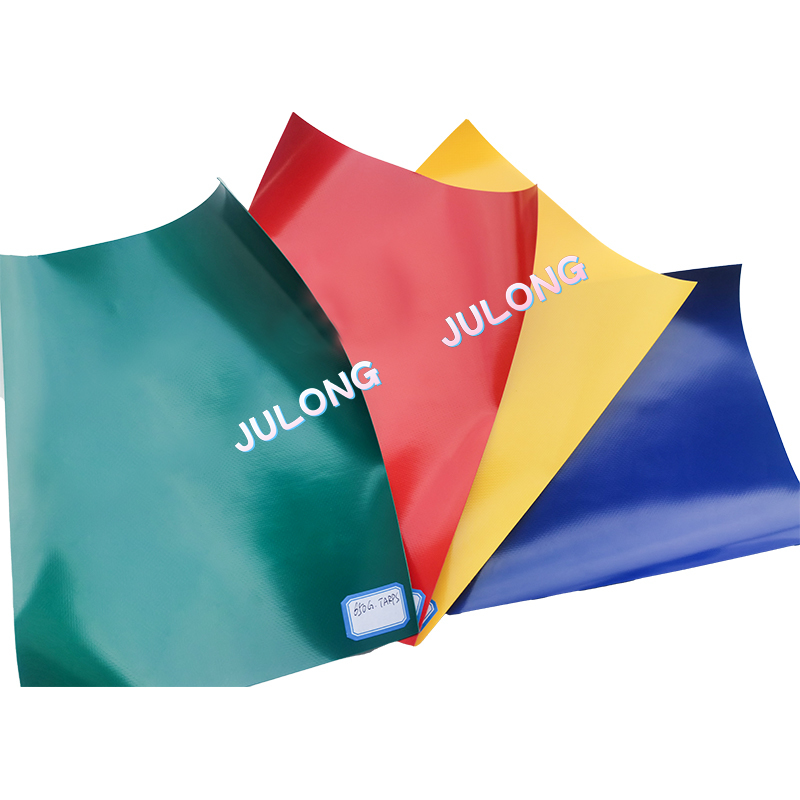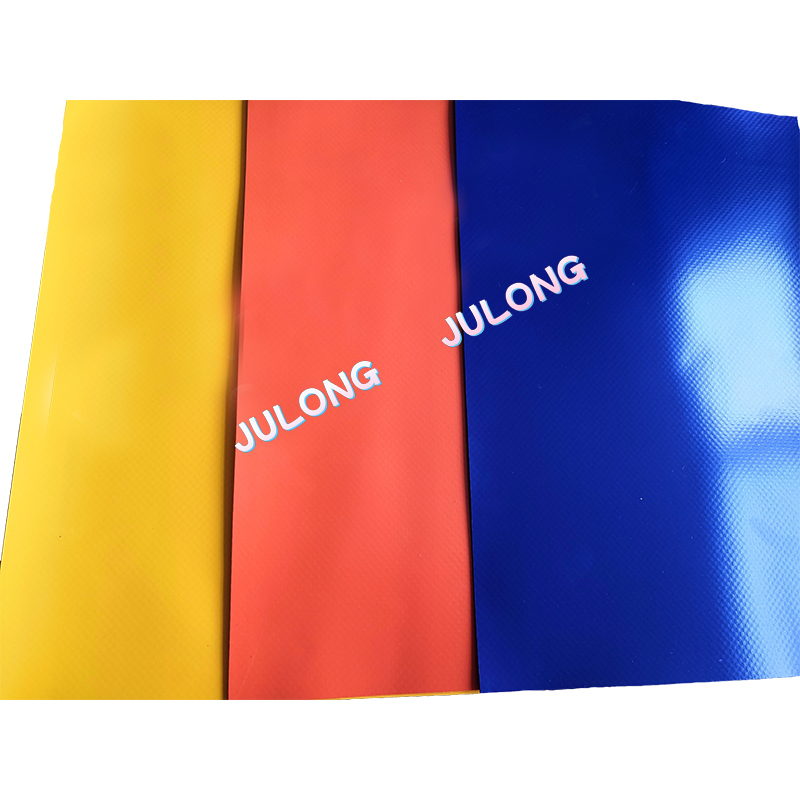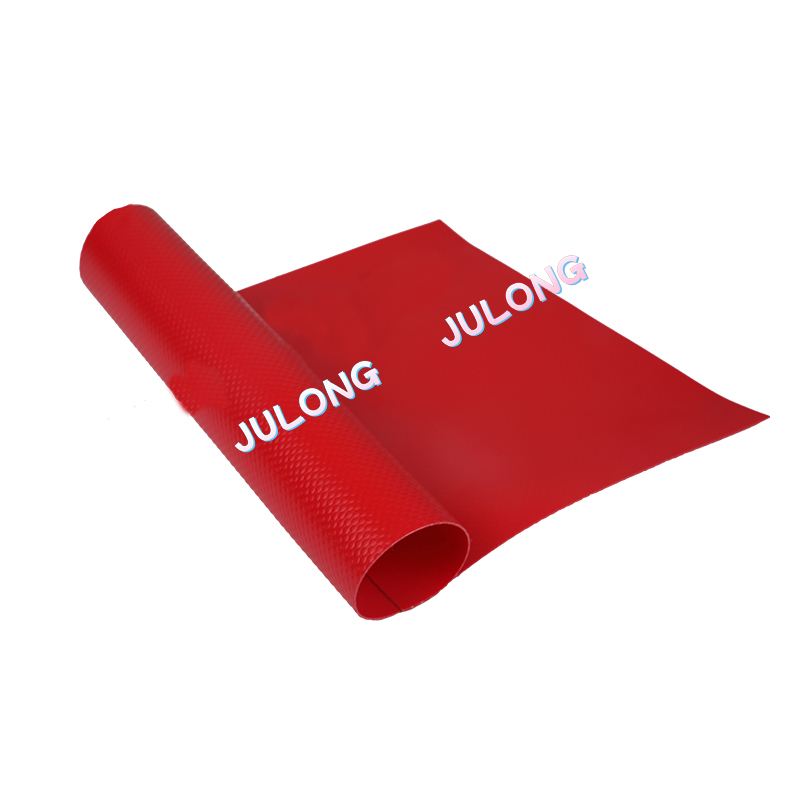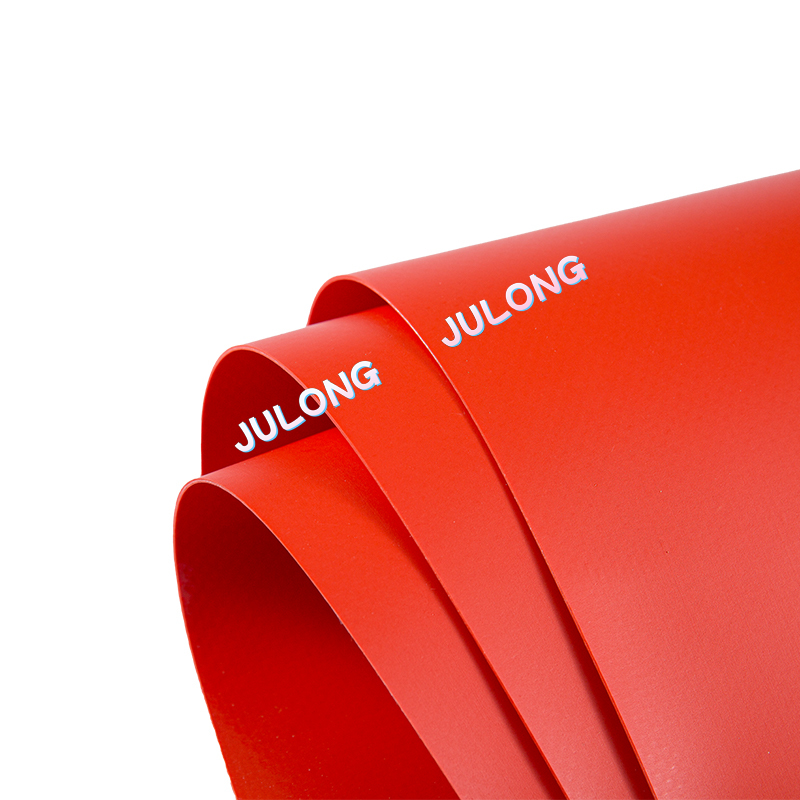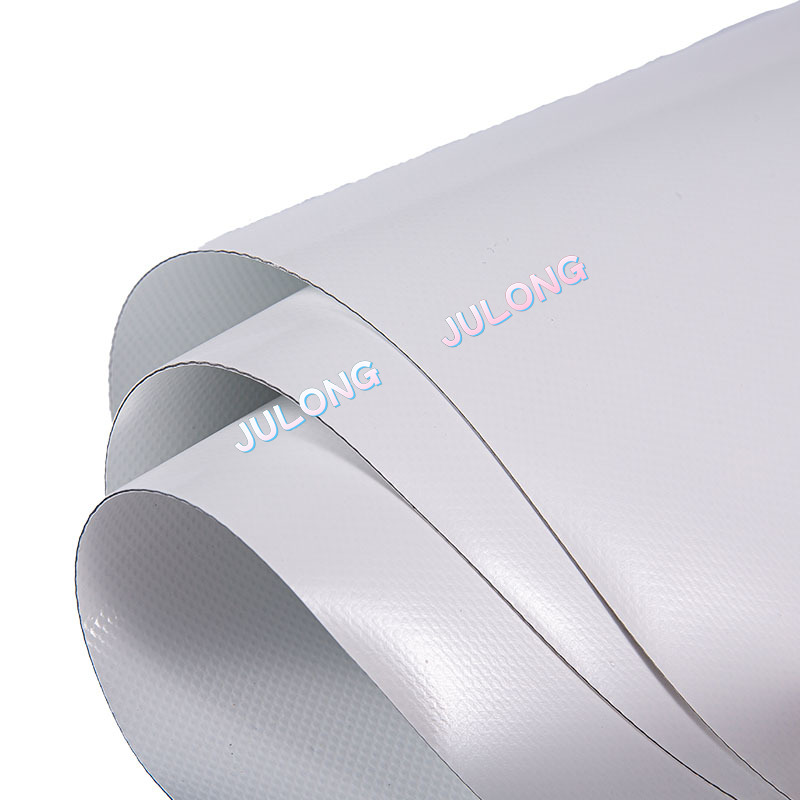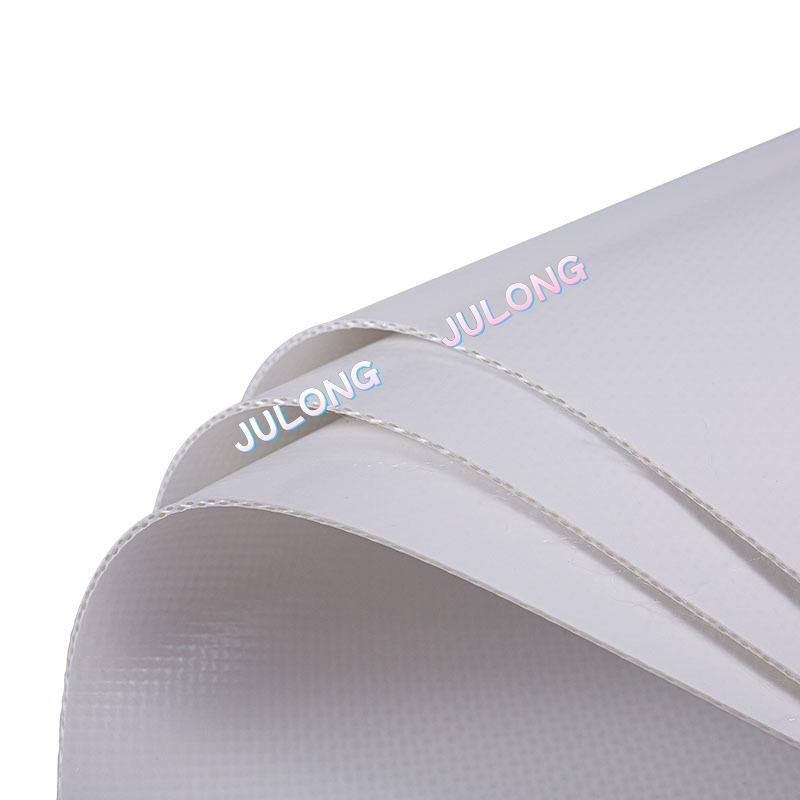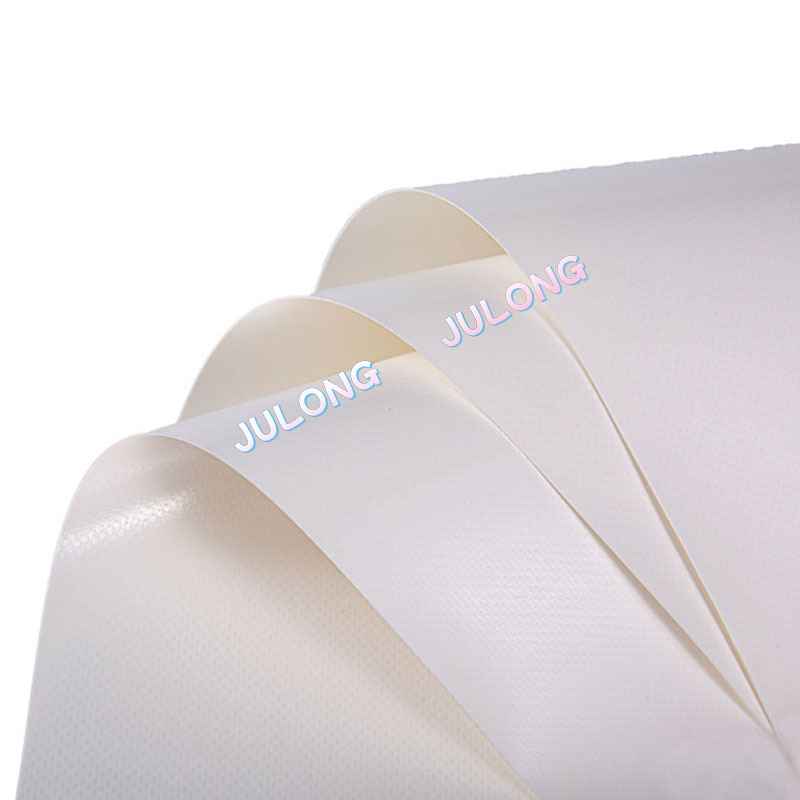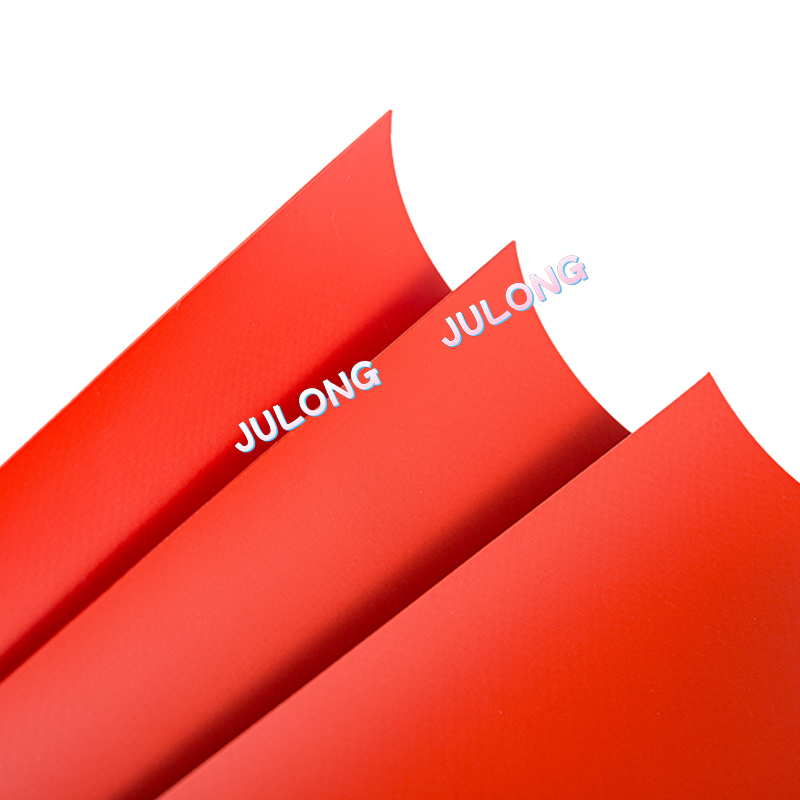PVC coated mesh fabric is one of the most versatile and durable materials used in both industrial and architectural applications today. Known for its excellent tensile strength, weather resistance, and long-lasting performance, this fabric has become a preferred choice across multiple sectors — from construction and transportation to outdoor design and advertising. Its unique structure, which combines the strength of woven polyester mesh with the protective and flexible coating of polyvinyl chloride (PVC), offers a combination of functionality, aesthetics, and durability that few materials can match.
This article explores the composition, properties, and most importantly, the common applications of PVC coated mesh fabric in modern industry and architecture.
1. Overview of PVC Coated Mesh Fabric
PVC coated mesh fabric is a composite textile made by coating a woven polyester base fabric with a layer of PVC resin. The polyester mesh provides strength, stability, and dimensional consistency, while the PVC coating enhances resistance to UV rays, moisture, corrosion, and temperature changes.
The result is a strong yet lightweight fabric that allows controlled airflow and light transmission without compromising protection and durability. The material is available in various grades, thicknesses, and finishes, depending on the intended use — from lightweight mesh for banners to heavy-duty architectural-grade membranes.
Key characteristics include:
- Excellent tensile and tear strength
- Resistance to UV, moisture, and chemicals
- Flame retardancy and mildew resistance
- Air and light permeability
- Easy welding, cutting, and installation
Because of these features, PVC coated mesh fabric is a material that seamlessly bridges industrial practicality with architectural creativity.
2. Applications in Architecture
In the field of architecture, PVC coated mesh fabric is widely used as both a functional and decorative material. It plays a crucial role in modern building design by offering flexibility, transparency, and environmental performance.
(1) Tensile Membrane Structures
One of the most prominent uses of PVC coated mesh fabric is in tensile membrane architecture. These are lightweight structures supported by cables, masts, or frames that create expansive, aesthetically pleasing forms.
Applications include:
- Stadium roofs
- Exhibition pavilions
- Walkway canopies
- Amphitheaters and outdoor shelters
PVC coated mesh fabric is ideal for these purposes because it combines strength and flexibility while maintaining light permeability, creating bright, open spaces that reduce the need for artificial lighting.
(2) Facade Cladding and Building Envelopes
Architectural facades made from PVC coated mesh offer both visual appeal and environmental benefits. The mesh acts as a second skin for the building — filtering sunlight, reducing heat gain, and allowing natural ventilation.
Benefits include:
- Energy efficiency through solar shading
- Protection from wind and rain
- Creative patterns and color options for aesthetic design
- Reduction in glare for improved interior comfort
This use is common in modern commercial buildings, shopping malls, and public facilities where sustainability and design innovation are key priorities.
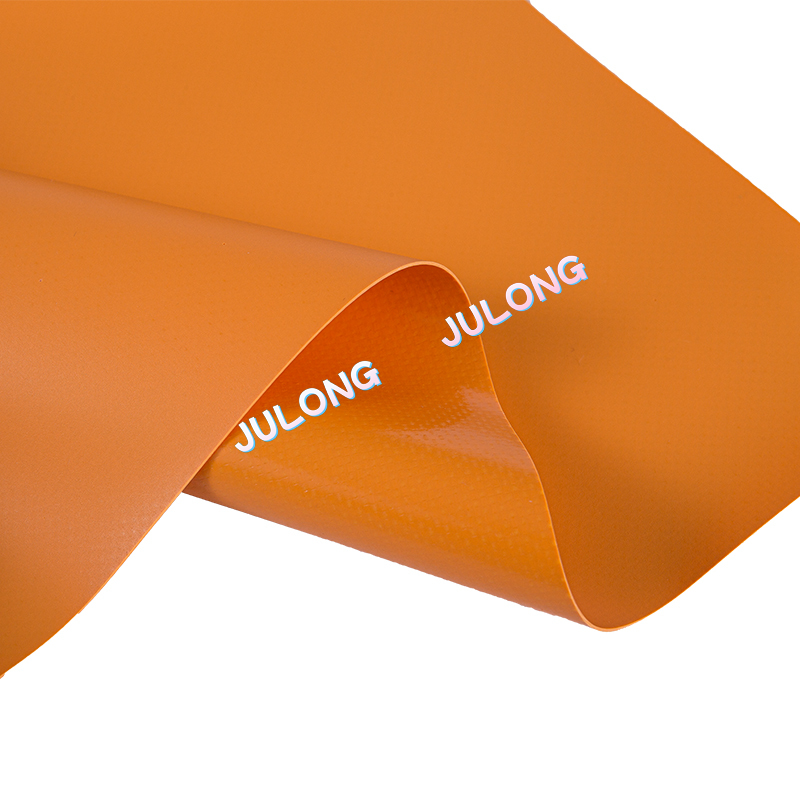
(3) Shade Structures and Awnings
PVC coated mesh fabric is also extensively used in shade sails, awnings, and pergola coverings. Its UV resistance and flexibility make it perfect for outdoor environments.
Common applications include:
- Carports and patios
- Garden and poolside shading
- Outdoor restaurants and cafes
- Temporary event shelters
The material’s semi-transparent nature allows for effective shading without completely blocking natural light, ensuring both comfort and style.
(4) Acoustic and Interior Design Applications
Architects also use PVC coated mesh fabric in interior applications such as acoustic panels, partitions, and decorative ceilings. The fabric’s perforated surface helps diffuse sound and light, enhancing both aesthetics and functionality in modern interior environments.
3. Applications in Industry
In industrial settings, PVC coated mesh fabric is valued for its durability, flexibility, and resistance to harsh conditions. It can withstand exposure to chemicals, abrasion, and extreme temperatures, making it suitable for many technical uses.
(1) Industrial Curtains and Partitions
PVC mesh is often used in factory dividers, welding screens, and safety enclosures. It separates work areas while allowing visibility and air circulation.
Advantages:
- Dust and debris containment
- Easy cleaning and maintenance
- Transparency for safe supervision
- Resistance to sparks, chemicals, and oils
These curtains are common in manufacturing plants, warehouses, and workshops that need controlled separation without building permanent walls.
(2) Transportation and Logistics
PVC coated mesh fabric is a staple material in the transportation and logistics industry. Its strength and weatherproof qualities make it ideal for truck tarpaulins, cargo covers, and trailer curtains.
Typical uses:
- Truck side curtains
- Container and cargo covers
- Marine and boat covers
The mesh allows airflow to prevent condensation and mold, while the PVC coating ensures that cargo remains protected from rain, UV radiation, and road debris.
(3) Agricultural and Greenhouse Applications
In agriculture, PVC mesh fabric is used for shade nets, windbreaks, and greenhouse coverings. The fabric moderates sunlight, protects crops from wind and pests, and helps maintain consistent humidity and temperature levels.
Benefits:
- Improved crop yield and quality
- Protection from UV radiation and insects
- Reduced water evaporation
- Cost-effective and durable solution
It’s also used for livestock enclosures and fencing, providing ventilation while maintaining safety and containment.
(4) Filtration and Ventilation Systems
Due to its breathable structure, PVC coated mesh fabric is applied in air filtration, screening, and ventilation systems. It serves as an effective barrier that allows air passage while blocking dust, debris, or insects.
Such applications are found in HVAC systems, industrial air filters, and protective screening for machinery or ventilation outlets.
(5) Safety Barriers and Fencing
PVC coated mesh fabric’s combination of strength, flexibility, and visibility makes it an excellent material for temporary fencing and safety barriers at construction sites, sports events, and outdoor festivals.
Features include:
- Lightweight for easy installation and relocation
- Weather and UV resistance
- Visibility for safety compliance
- Reusability for multiple events
4. Environmental and Performance Advantages
PVC coated mesh fabric is not only practical but also environmentally friendly compared to many alternative materials. Modern production processes incorporate recyclable PVC formulations and low-emission coatings, reducing environmental impact.
Additionally, the material’s long service life — often exceeding 10 years in outdoor applications — minimizes replacement costs and waste generation. Its resistance to mold, UV radiation, and temperature fluctuations ensures consistent performance across various climates.
5. Future Trends and Innovations
The use of PVC coated mesh fabric continues to evolve with advancements in coating technology and sustainable materials. Some emerging trends include:
- Eco-friendly PVC alternatives such as TPU and PVDF coatings for improved recyclability.
- Self-cleaning surface coatings that resist dirt and pollution.
- Smart architectural fabrics that integrate solar panels or sensors for energy generation and building automation.
These innovations enhance the material’s role in green architecture, smart construction, and modern industrial applications.
Conclusion
PVC coated mesh fabric has become an indispensable material in both industry and architecture due to its remarkable balance of strength, flexibility, and environmental resistance. From tensile roofs and building facades to truck tarps and agricultural shades, it offers a reliable solution for applications that demand durability and design freedom.
As technology continues to advance, PVC coated mesh fabric will remain a key player in sustainable construction, efficient logistics, and innovative design — a material that perfectly embodies the fusion of functionality and aesthetics in the modern world.


 English
English عربى
عربى